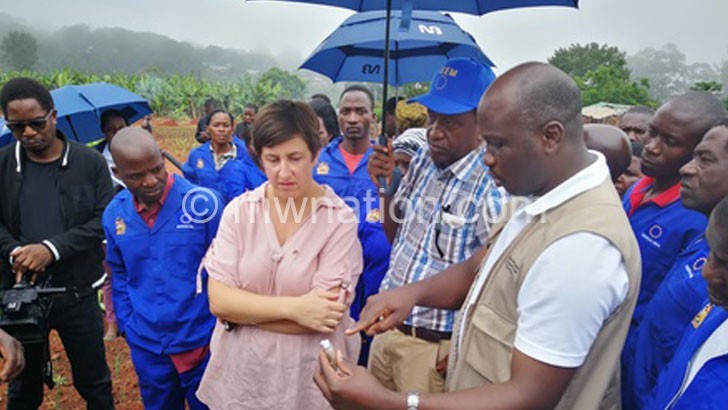EU for natural ways of fighting fall armyworms
The European Union (EU) Ambassador to Malawi Sandra Paesen has urged authorities and farmers in Malawi to promote natural ways of controlling fall armyworms, saying chemicals have a negative effect on the environment and lives.

Speaking on Tuesday when she inspected interventions by Mzuzu Agricultural Development Division (ADD) to improve farming, Paesen said fall armyworms have affected crop yields; hence, the need to control them.
She said: “There are various natural techniques such as planting beans in between the maize crops and other plants. There are natural ways of fighting the fall armyworm.”
Paesen discouraged the use of pesticides, saying they put lives of people at risk and that some pests mutate and become resistant to pesticides.
“It is the same with antibiotics. If I have a flu, I am not taking aspirin or any paracetamol. I go to bed and let the disease go away. If we start to take all kinds of antibiotics when we have a flu, it means the virus is going to get stronger and stronger and at the end of the day we are left defenceless,” she said.
On his part, Food and Agriculture Organisation (FAO) representative James Koth said there is need to engage research centres and sensitise farmers to how the pest looks like, how it spreads and how the farmers can manage it while government is looking into availability of control mechanisms.
Mzuzu ADD acting deputy programmes manager Thomas Chigawo said they are currently training farmers on measures they can apply to control the pest.
In the last growing season, fall armyworms heavily affected maize production, leaving some food insecure.
Currently, various research projects are taking place to find solutions to fighting the pest and in turn improve maize production.





